As Bitcoin returns to the $100,000 mark, the market capitalization of the entire AI concept token sector has increased by 14.22% in 24 hours, strongly breaking through the $10 billion threshold. The heat in the DeAI track continues to rise, becoming the core focus of market attention. Against this backdrop, BlockBeats recently conducted an exclusive interview with Scott Stuart, co-founder of the L1 public chain Kava, which focuses on Crypto+AI development.
Scott analyzed the logic behind Kava's strategic shift, the technical system and core advantages of DeAI, as well as innovative practices in key areas such as security and architectural collaboration. With his deep background in mathematics, economics, and technology, combined with strategic thinking honed over years as a professional poker player, Scott clearly illustrated how Kava has evolved from a DeFi pioneer to an explorer and leader in the DeAI track.
Facing the pain points of high user thresholds and complex operations in the DeFi field, Kava has keenly captured the immense potential of AI technology. By seamlessly integrating AI into blockchain operations, Kava aims to significantly simplify user interactions with decentralized networks, automating complex blockchain operations to truly lower the participation threshold of DeFi, making it accessible to a broader user base.
By empowering DeFi with AI, Kava is committed to building a more inclusive, efficient, and secure decentralized digital economy. This interview will take you deep into Kava's strategic layout, technological innovation, and future vision in the DeAI field, offering a glimpse of how this former DeFi powerhouse is navigating new waters and creating a new pattern of development that merges DeFi and AI.
From DeFi to DeAI: Kava's Strategic Shift
BlockBeats: Please briefly introduce your background and what prompted you to enter the crypto industry and found Kava?
Scott: My journey began with studying mathematics and economics, followed by years as a professional poker player, where strategic thinking, probability assessment, and quick decision-making were crucial. After leaving my poker career, I founded AppEase, gaining valuable experience in expanding technology-driven enterprises.
Around 2016, I developed a strong interest in blockchain, attracted by its potential in empowering decentralized finance. We recognized the transformative power of Ethereum and Cosmos, and in 2017, we founded Kava Labs, dedicated to democratizing financial services and achieving transparency, fairness, and global accessibility.
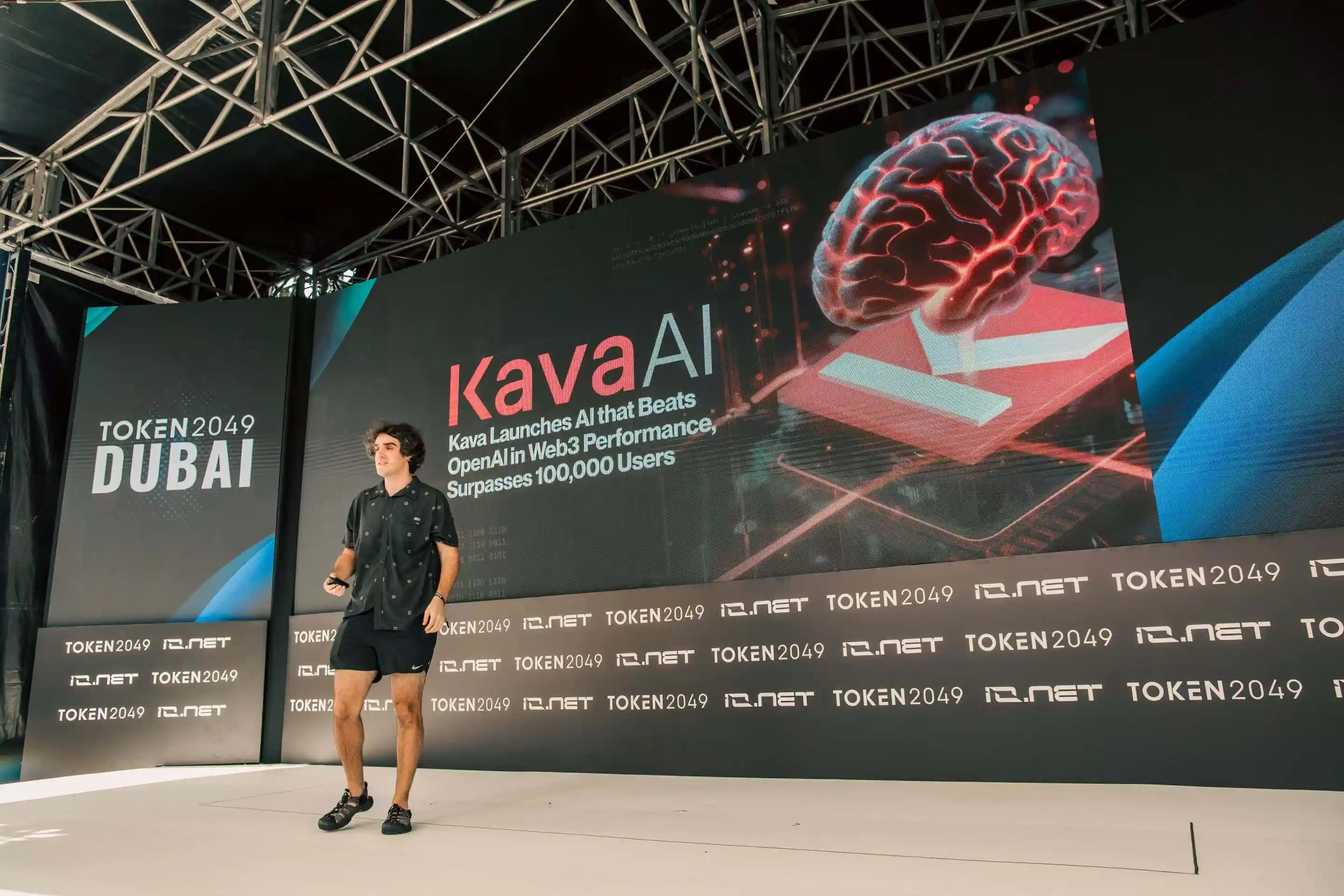
BlockBeats: Kava was initially positioned as a DeFi platform; why did you decide to shift your core strategy towards decentralized AI? Can you describe Kava's overall architecture and several key milestones?
Scott: We initially focused on DeFi and gradually shifted to decentralized AI to address the complexity of DeFi, which often deters mainstream users.
Introducing AI was a natural step, as it automates complex blockchain operations, greatly simplifying user interaction processes. Today, Kava's architecture has seamlessly integrated decentralized AI systems into blockchain operations. Recent significant developments include the launch of a decentralized AI model based on DeepSeek R1, which has quickly achieved over 100,000 independent user interactions, demonstrating strong market demand for intuitive, decentralized AI solutions.
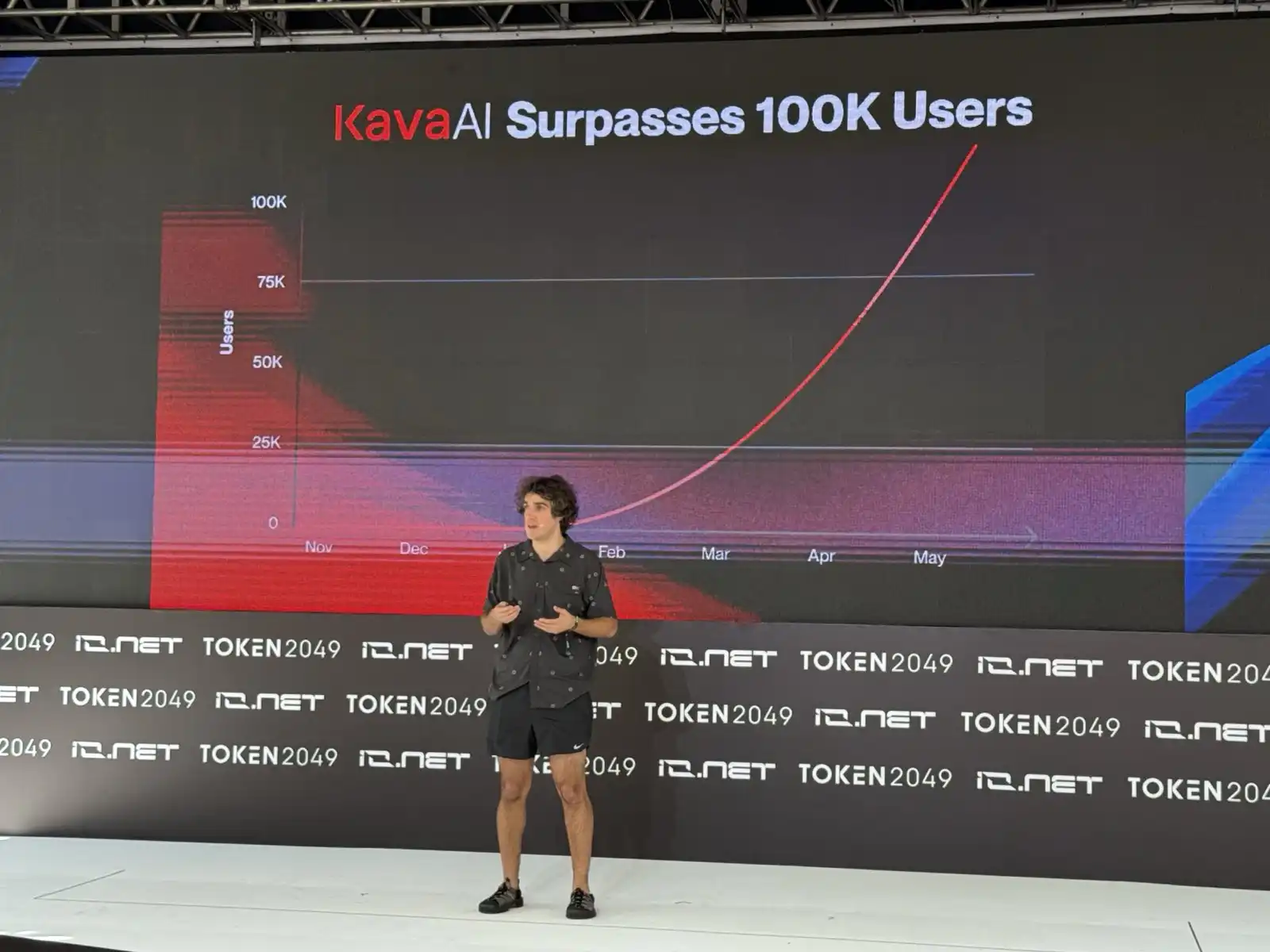
Kava AI's Technical System and Core Advantages
BlockBeats: In February of this year, Kava launched a native decentralized AI model powered by DeepSeek R1, surpassing OpenAI and DeepSeek itself in Web3 benchmark tests. What are the core capabilities of this model, and what is its strategic significance for Kava?
Scott: Kava AI strategically employs various powerful AI architectures such as Llama and Qwen, optimizing them specifically for DeFi scenarios. Our AI can perform a range of blockchain-specific operations, including wallet interactions, cross-chain compatibility, smart contract calls, and executing DeFi transactions through natural language. Its excellent performance in various benchmark tests fully demonstrates its reliability and efficiency in the decentralized finance field, making Kava an innovative leader in practical, executable AI blockchain solutions.
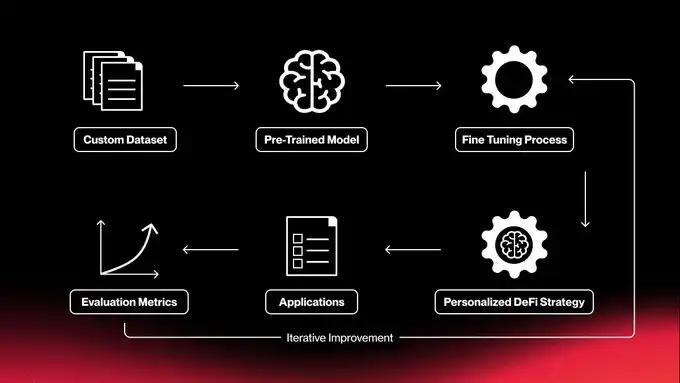
BlockBeats: Many projects claiming to be "decentralized" AI still rely on centralized APIs and private models. What do you see as the fundamental differences in architecture between Kava and these projects?
Scott: Unlike many AI solutions that depend on centralized APIs or proprietary models, Kava adheres to a true decentralized philosophy by running AI inference tasks on decentralized infrastructure networks like Akash.
Our platform combines the transparency of open-source application layers with flexible model integration capabilities—whether open-source or proprietary—to ensure system performance and reliability. Additionally, Kava promotes platform development and decision-making through a community governance mechanism.
BlockBeats: Oros, as the first decentralized intelligent system capable of understanding natural language and directly executing on-chain operations, plays a key role in Kava's AI infrastructure. How does it break through the limitations of traditional AI assistants or DeFi interfaces in automation and execution?
Scott: Oros is a core component of our intuitive blockchain interaction experience; it can understand natural language commands and directly execute on-chain transactions. By automating complex processes such as token swaps, staking, and yield strategies, Oros significantly lowers the usage threshold of traditional DeFi interfaces, providing users with a smoother and more effortless operational experience.
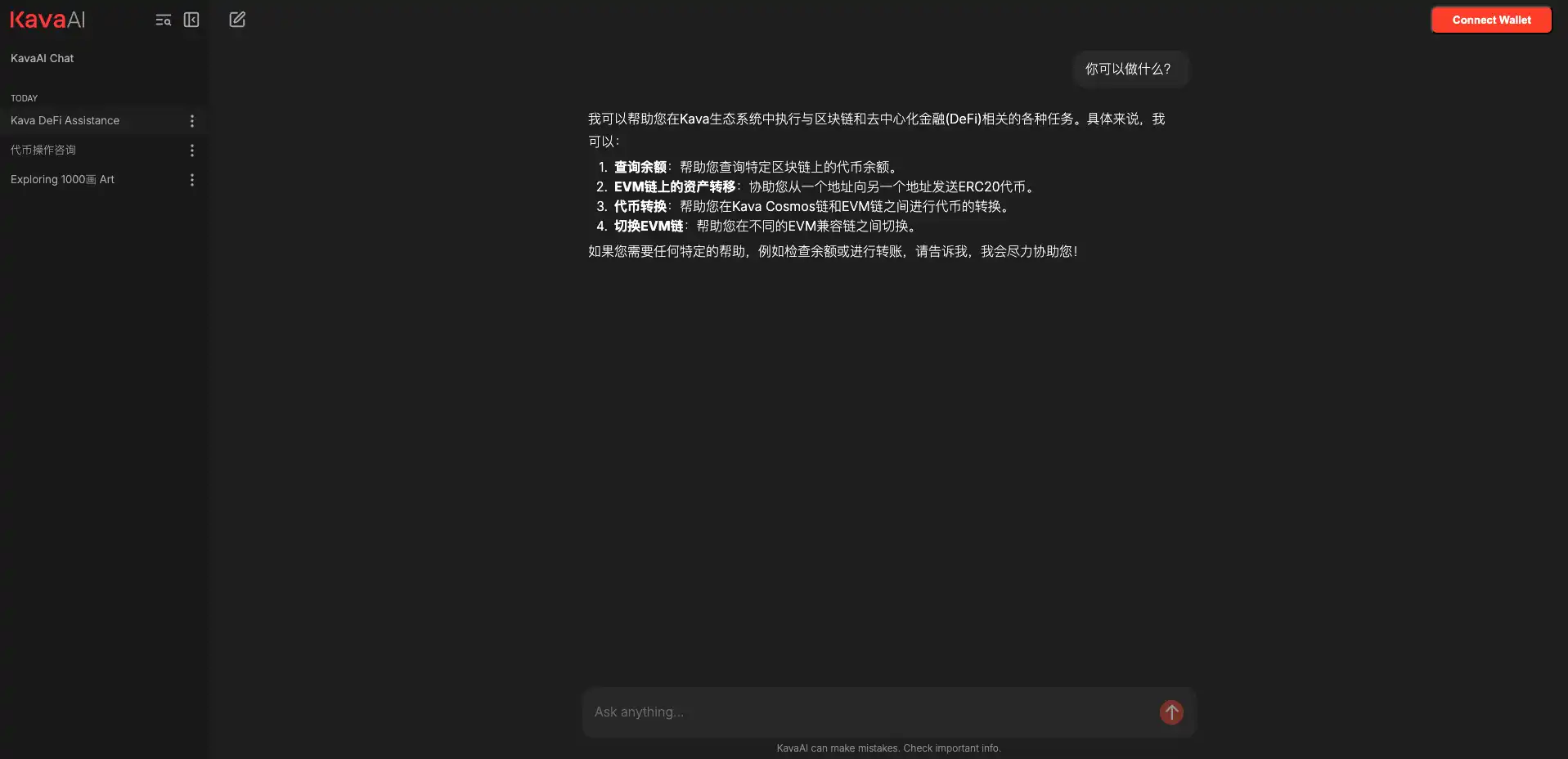
BlockBeats: Kava, which has always focused on DeFi, has lowered the threshold for ordinary people to participate in DeFi through AI. Is this the ideal direction for the development of DeFi and AI?
Scott: Integrating AI into DeFi not only simplifies user interaction processes but also makes financial strategies that were previously only accessible to experts available to everyone. This integration promotes financial inclusivity, lowers usage barriers, and allows ordinary users to participate easily, aligning closely with the core values of fairness and openness that decentralized finance pursues, while pointing to a promising development direction for future AI-driven DeFi solutions.
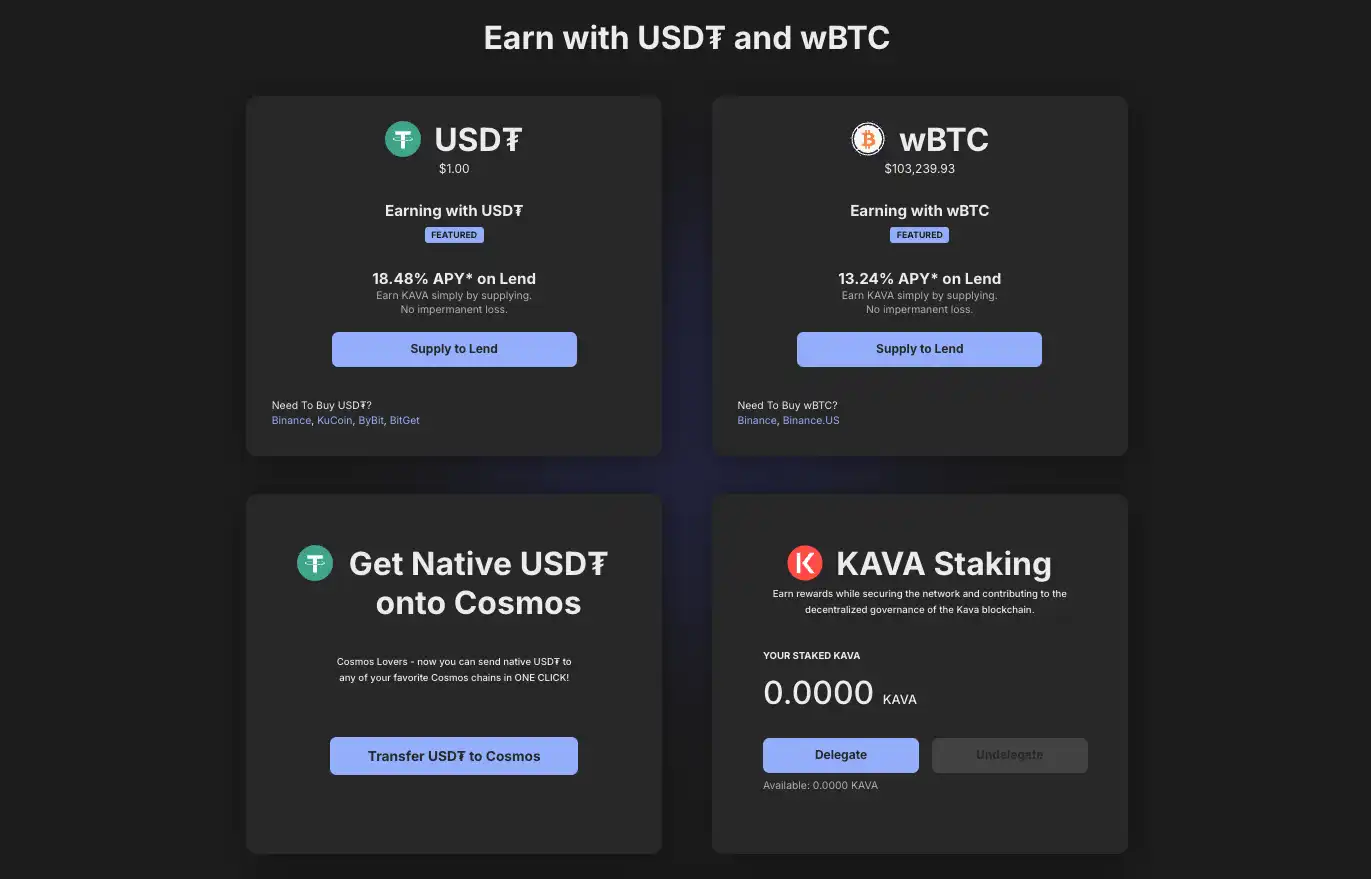
Kava's Security, Architecture, and Collaboration
BlockBeats: Security of funds is always the bottom line in the DeFi field. How does Kava's decentralized AI model ensure the safety and traceability of user assets during transaction execution?
Scott: Security and transparency are the cornerstones of Kava AI. All transactions executed by AI are completed on-chain, achieving full traceability and auditability, ensuring the credibility of operations. Our decentralized infrastructure guarantees the robustness of the system, while community governance through Kava DAO ensures that all system updates are transparent, auditable, and secure, creating a trustworthy environment for users.
BlockBeats: Is it reliable for AI to hold private keys?
Scott: We always adhere to strict security standards and will never allow the AI system to directly control users' private keys. Instead, we use secure and decentralized custody methods to ensure that users always have complete control over their private keys, with AI serving only as an auxiliary tool for transaction execution and decision-making.
BlockBeats: Besides the model itself, how is the "high-performance computing network" that Kava AI relies on constructed? How does it collaborate with Layer 1 public chains like Ethereum?
Scott: Kava AI builds a decentralized high-performance computing infrastructure based on globally distributed nodes, enhancing the system's scalability and redundancy. This infrastructure can seamlessly integrate with Ethereum and other Layer 1 blockchains, ensuring optimal performance for blockchain AI tasks in terms of cross-chain interoperability and execution efficiency.
What Does the Future Kava Look Like?
BlockBeats: You have pointed out that many AI projects have taken an NFT-like meme path, while Kava emphasizes pragmatism and structural innovation. In your view, what is the "core value" of decentralized AI?
Scott: The core value proposition of decentralized AI lies in transparency, user empowerment, and community governance. Unlike centralized AI systems that operate in closed environments controlled by private entities, decentralized AI achieves verifiable operations, auditable governance mechanisms, and user-led continuous evolution. This aligns closely with the principles advocated by blockchain, establishing an AI model that prioritizes serving user interests rather than corporate or centralized interests.
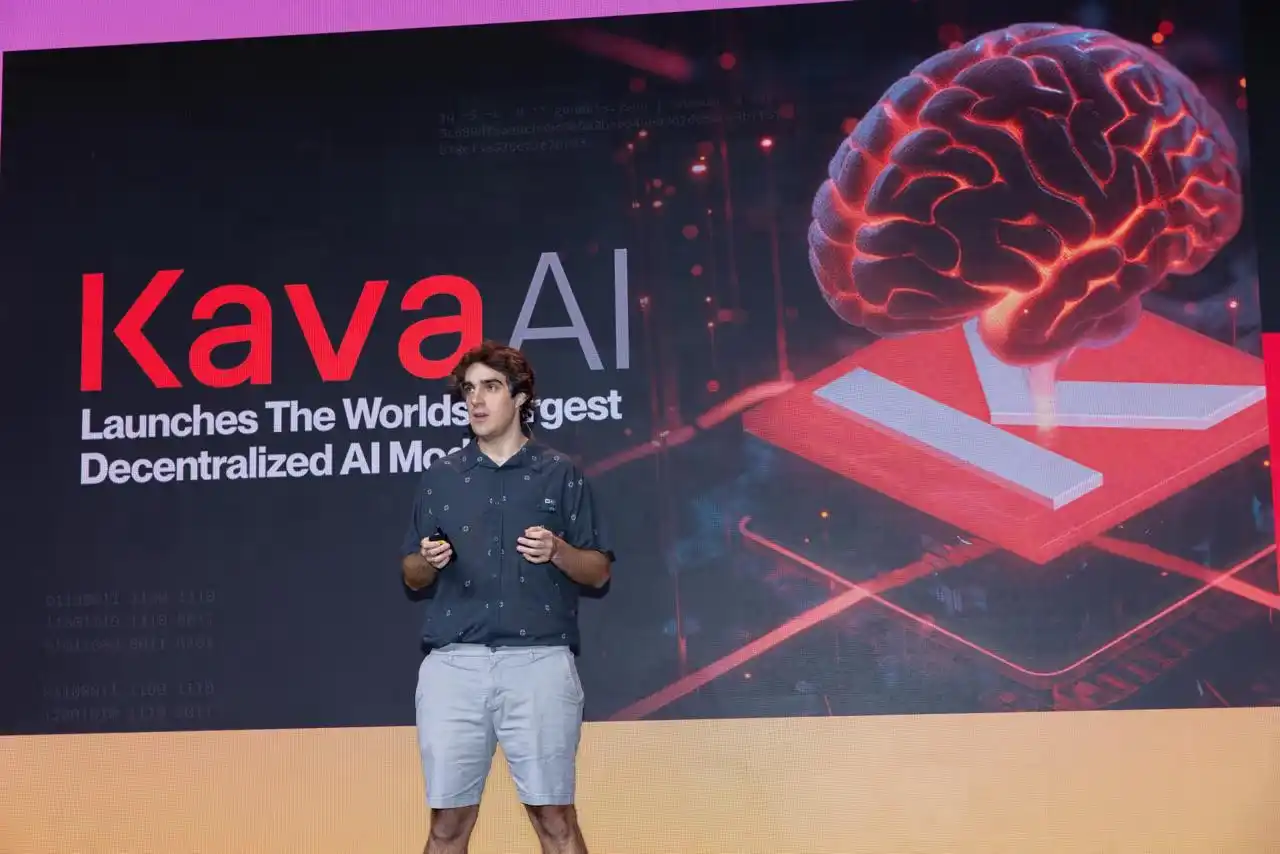
BlockBeats: What new actions or expansion plans should we look out for from Kava AI in the future?
Scott: Future plans include further advancing our AI-based blockchain execution layer, enhancing the AI Launchpad to provide a more intuitive user experience, and expanding cross-chain integration with major blockchain ecosystems. Additionally, we will innovate in fully decentralized AI model training, aiming to promote transparency, system robustness, and community collaboration.
BlockBeats: What do you hope Kava will look like in ten years? What do you most want to see realized?
Scott: In ten years, I hope Kava will be the cornerstone of global infrastructure, empowering billions of people to seamlessly interact with decentralized services. My vision is for Kava to support an inclusive and transparent digital economy, reshaping global financial interactions through intuitive, user-friendly, AI-driven methods, promoting the proliferation of decentralized finance and services, fostering innovation, and ensuring large-scale decentralized governance.
免责声明:本文章仅代表作者个人观点,不代表本平台的立场和观点。本文章仅供信息分享,不构成对任何人的任何投资建议。用户与作者之间的任何争议,与本平台无关。如网页中刊载的文章或图片涉及侵权,请提供相关的权利证明和身份证明发送邮件到support@aicoin.com,本平台相关工作人员将会进行核查。



